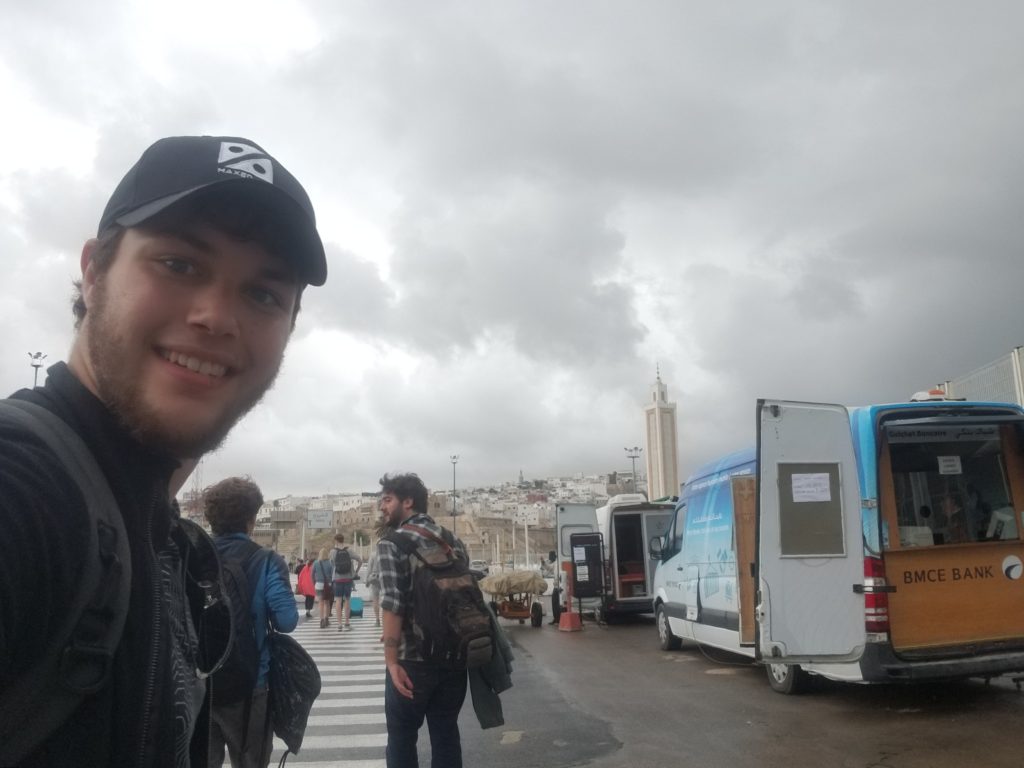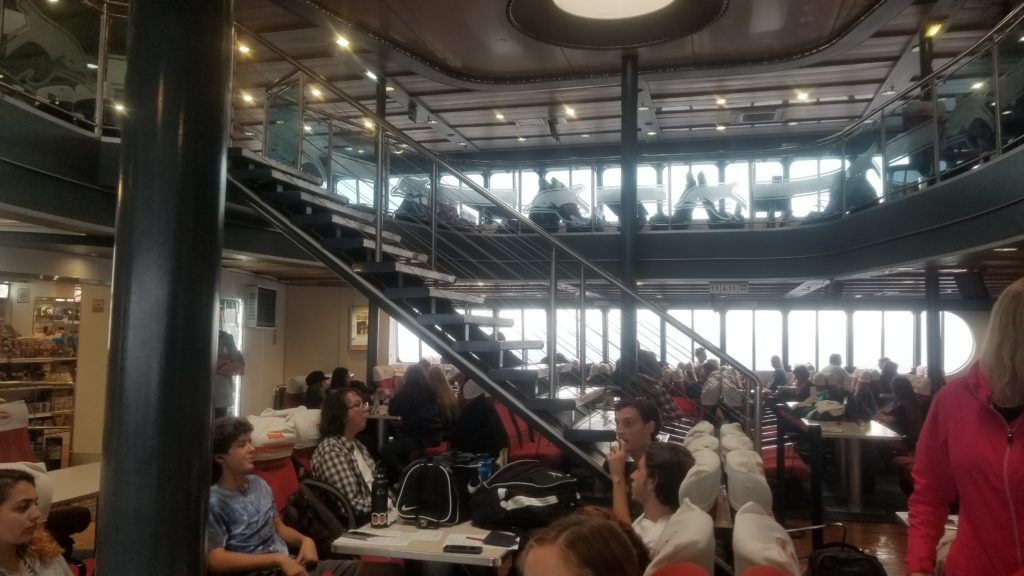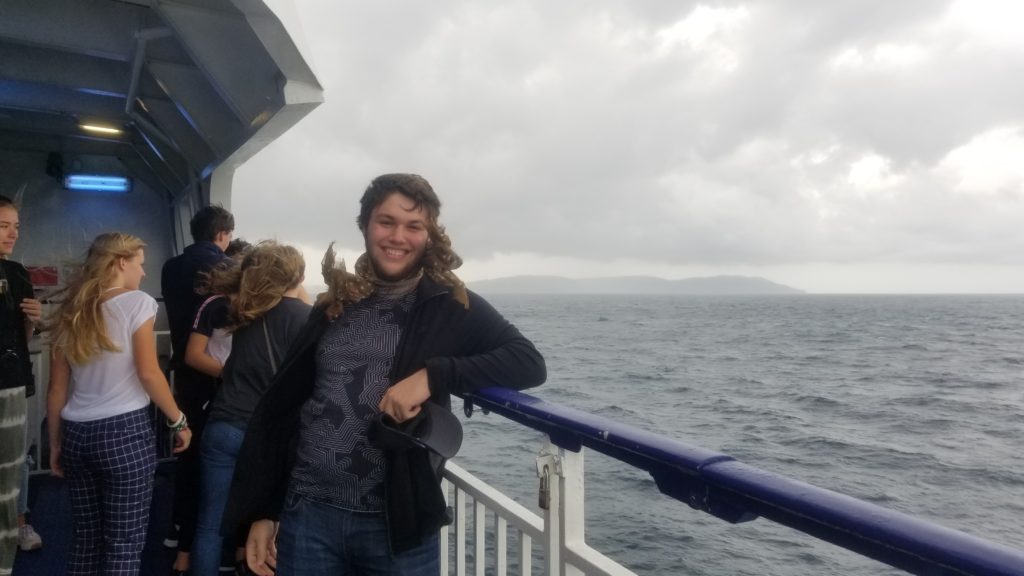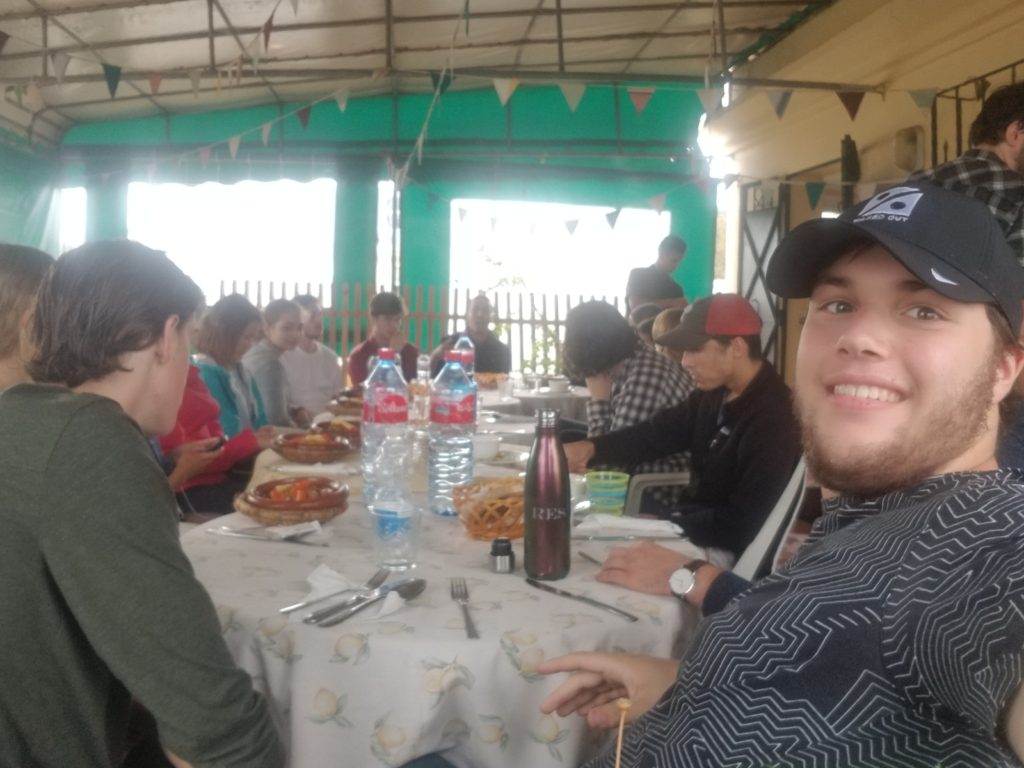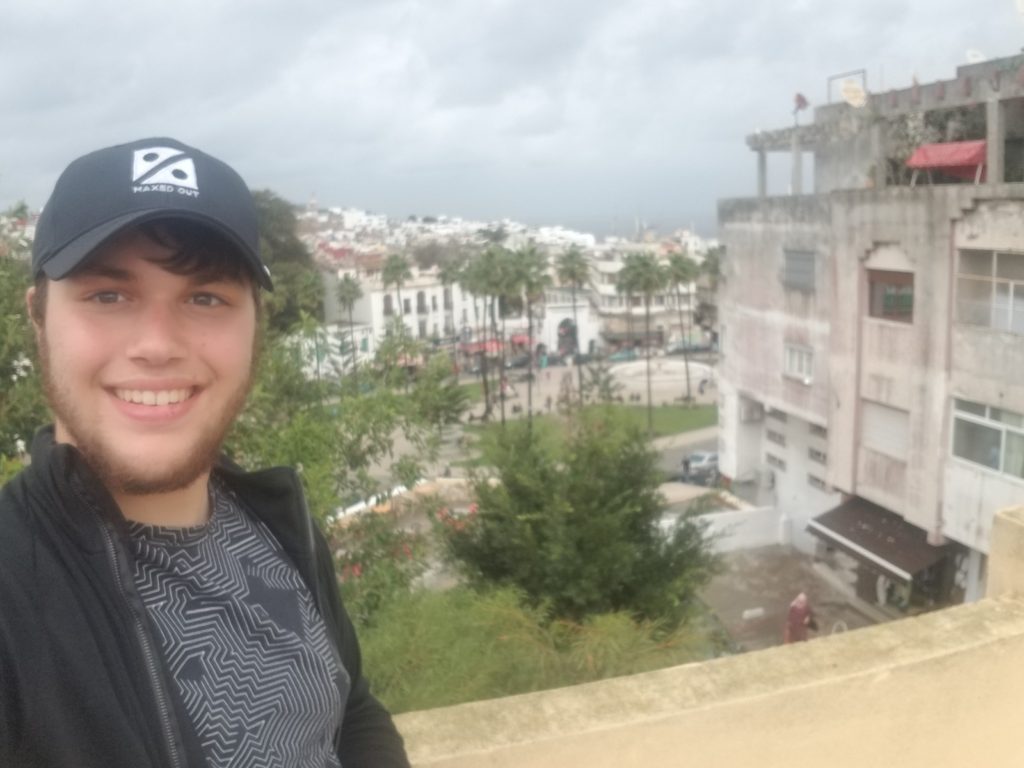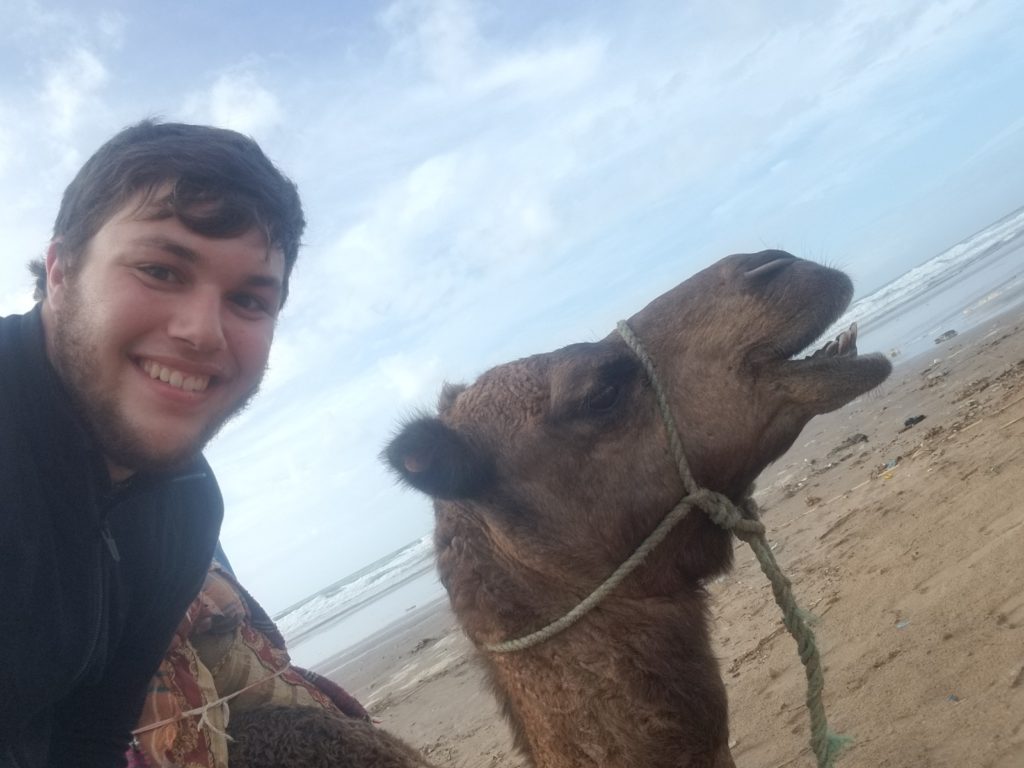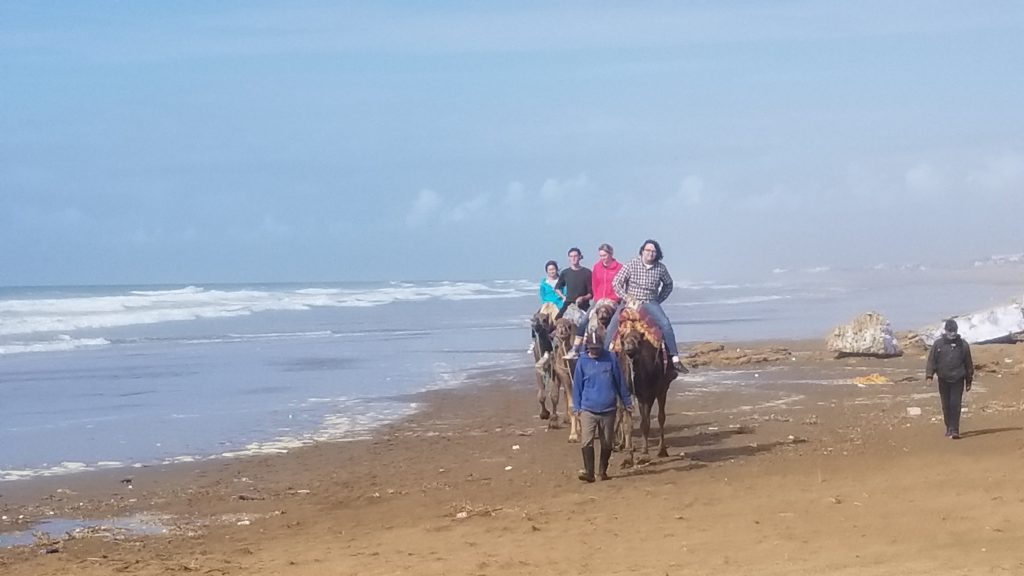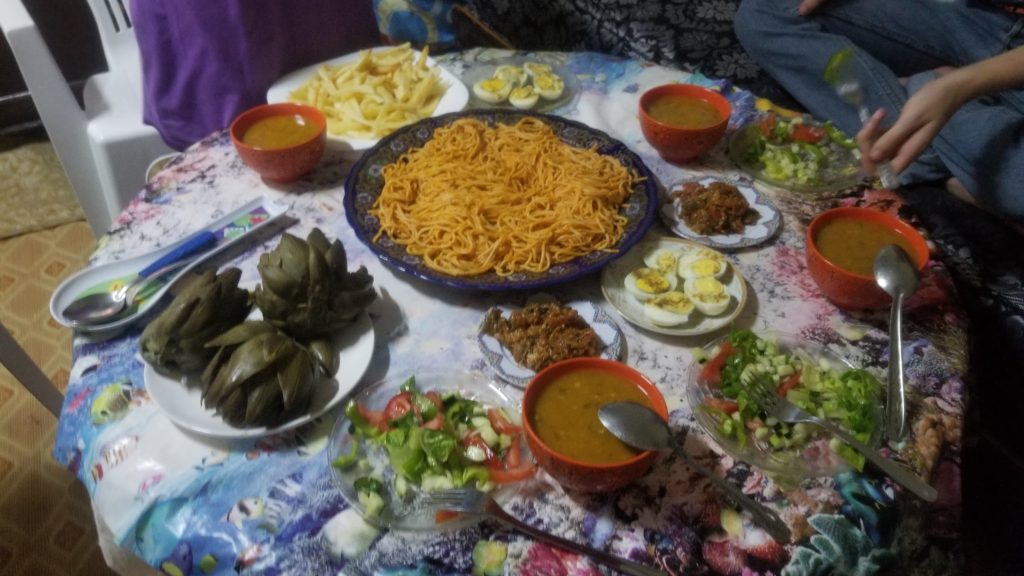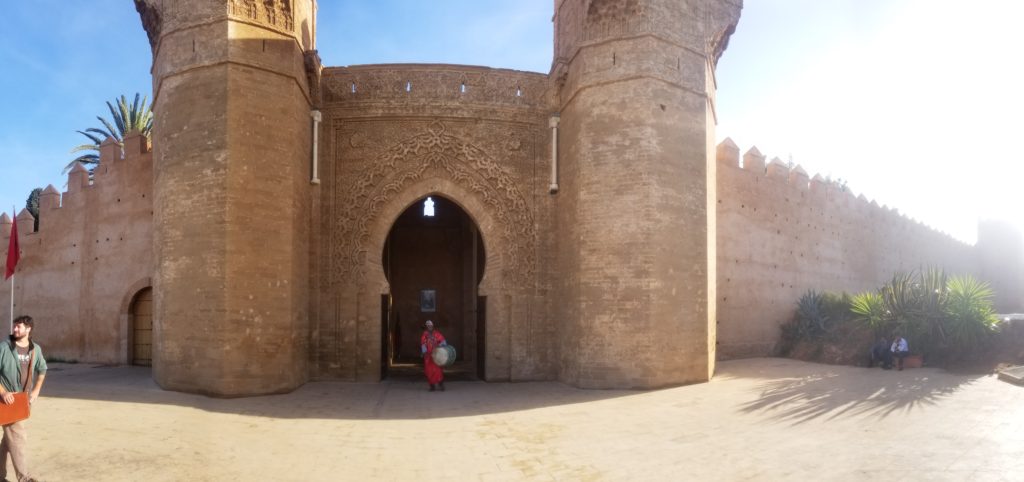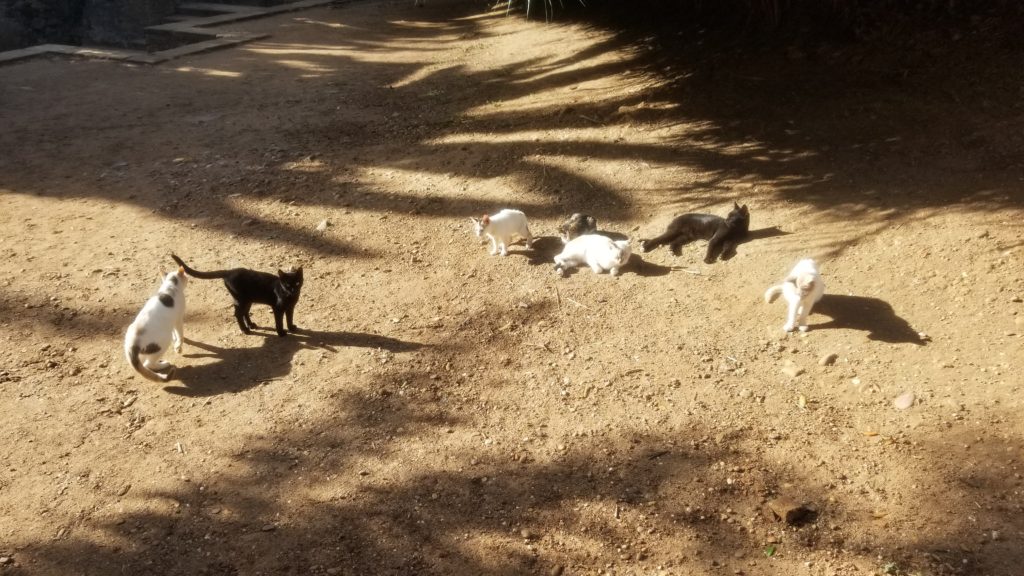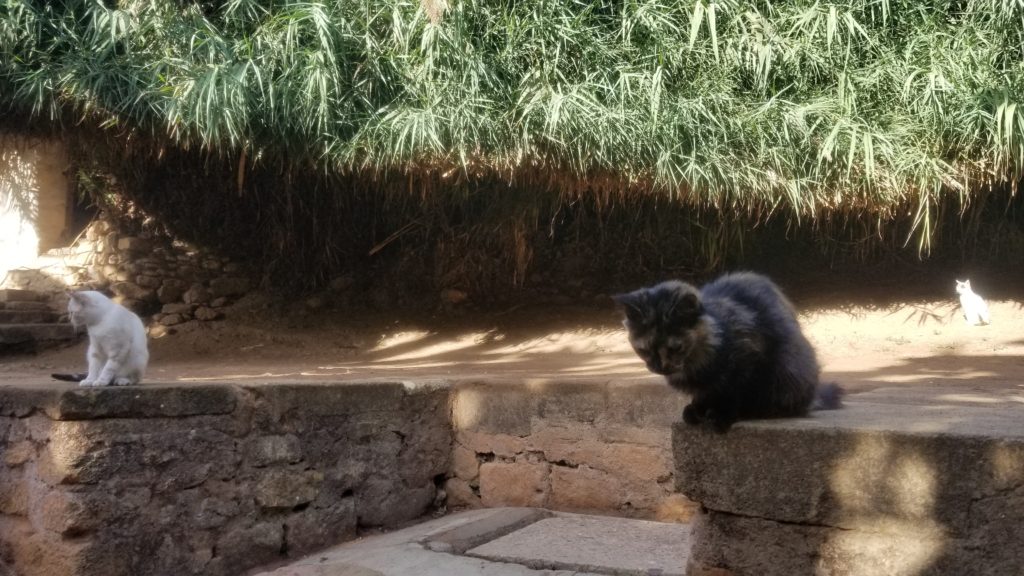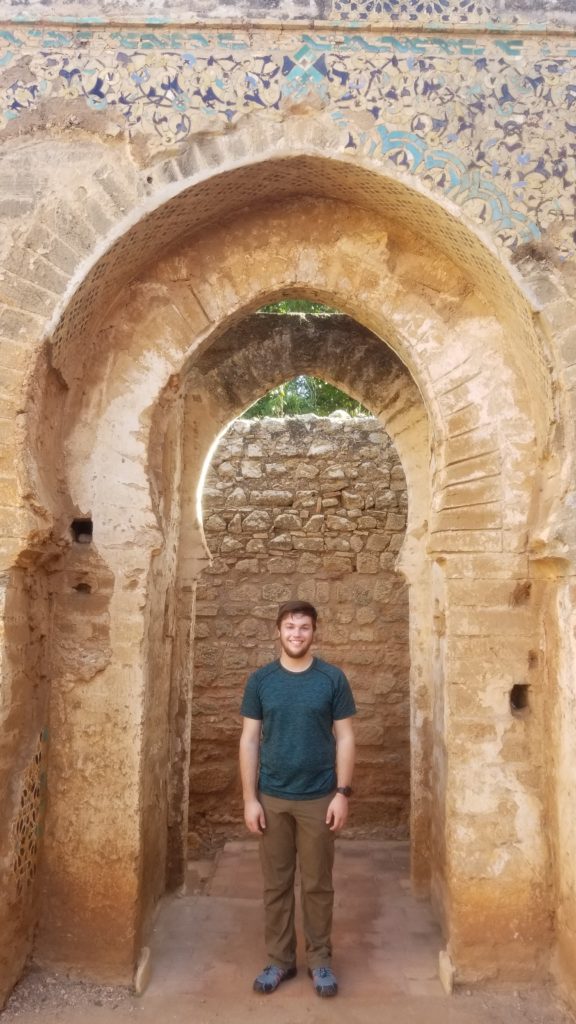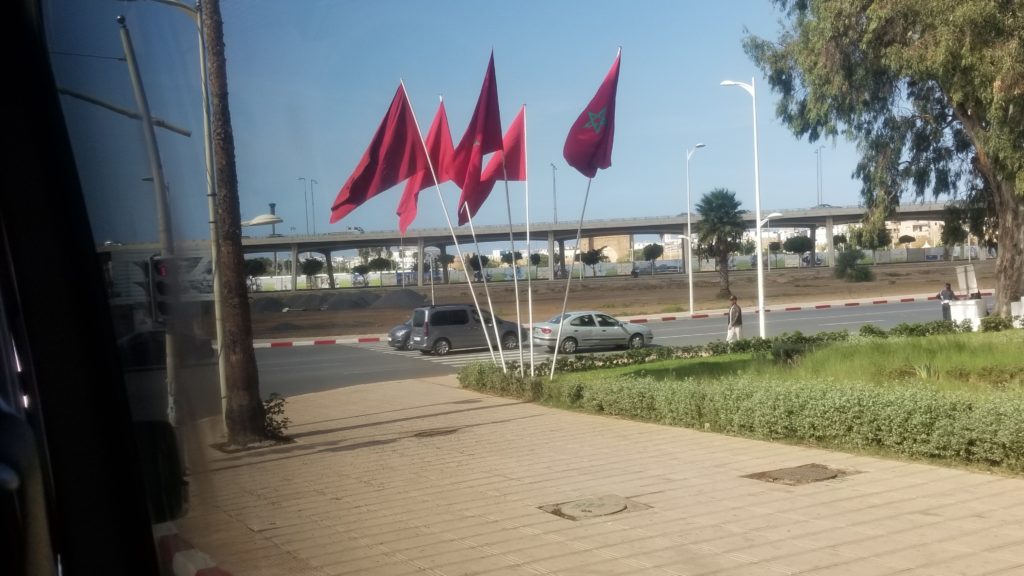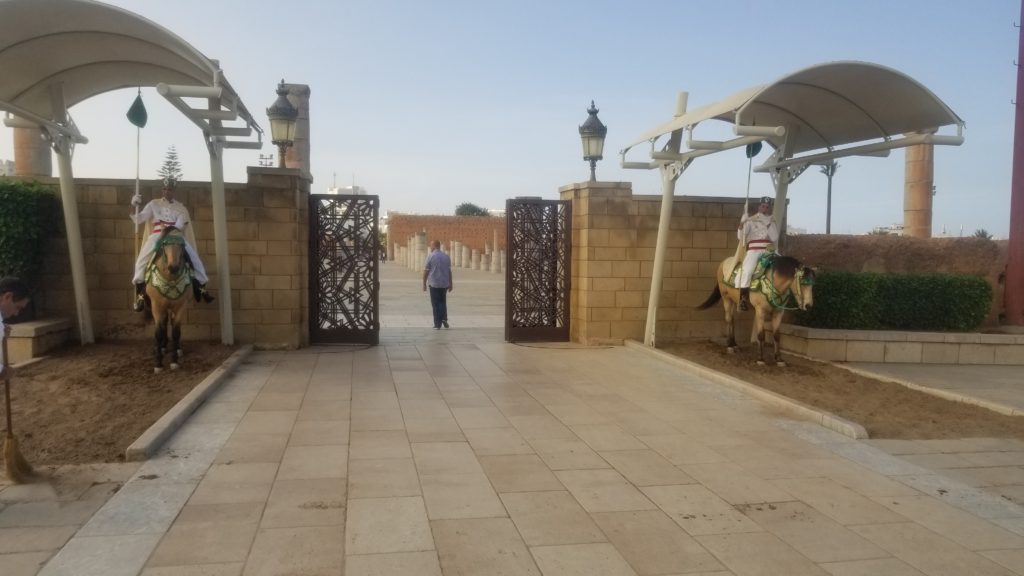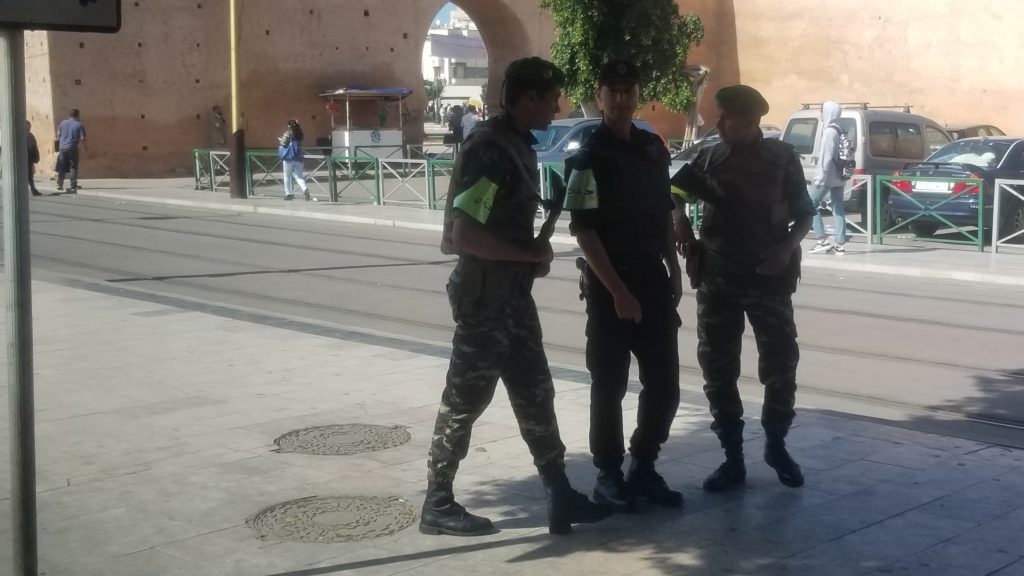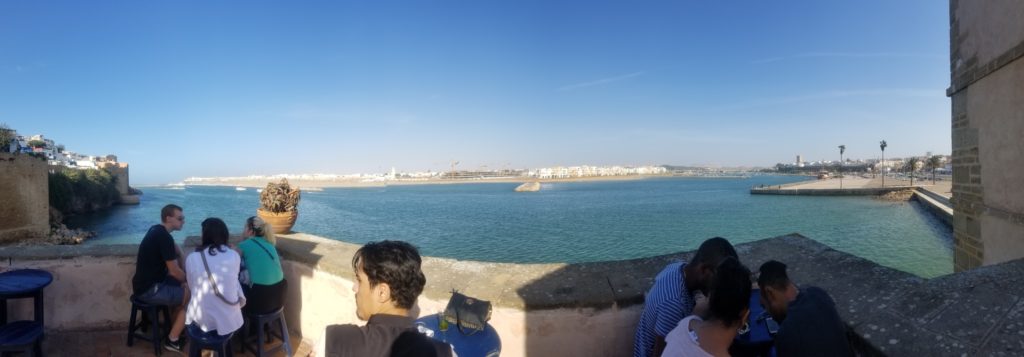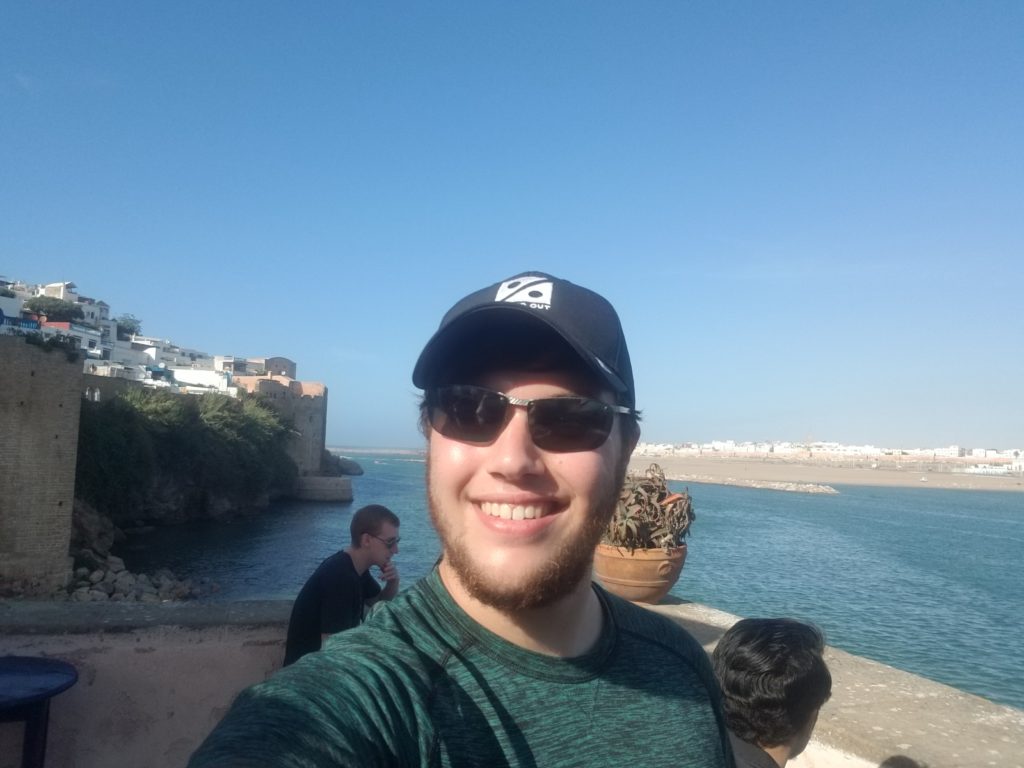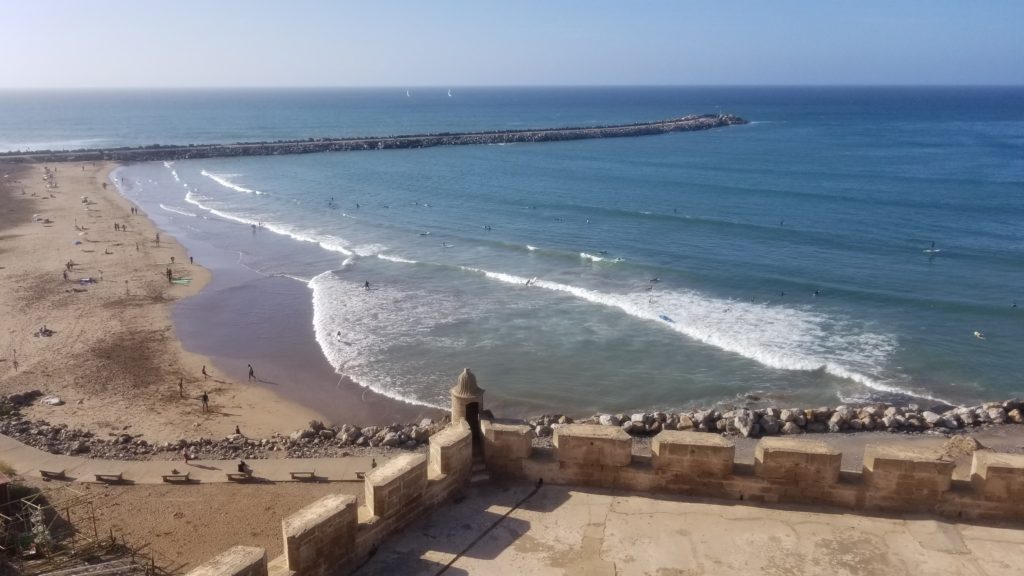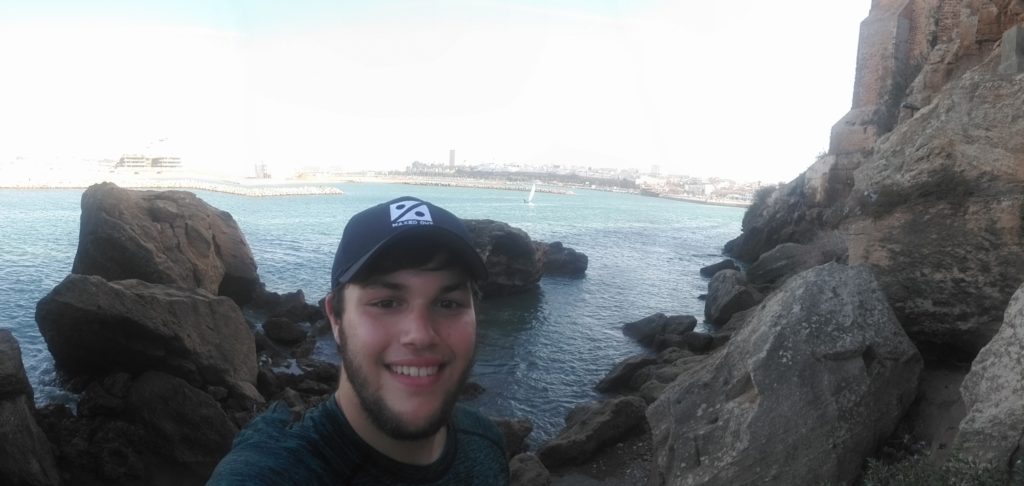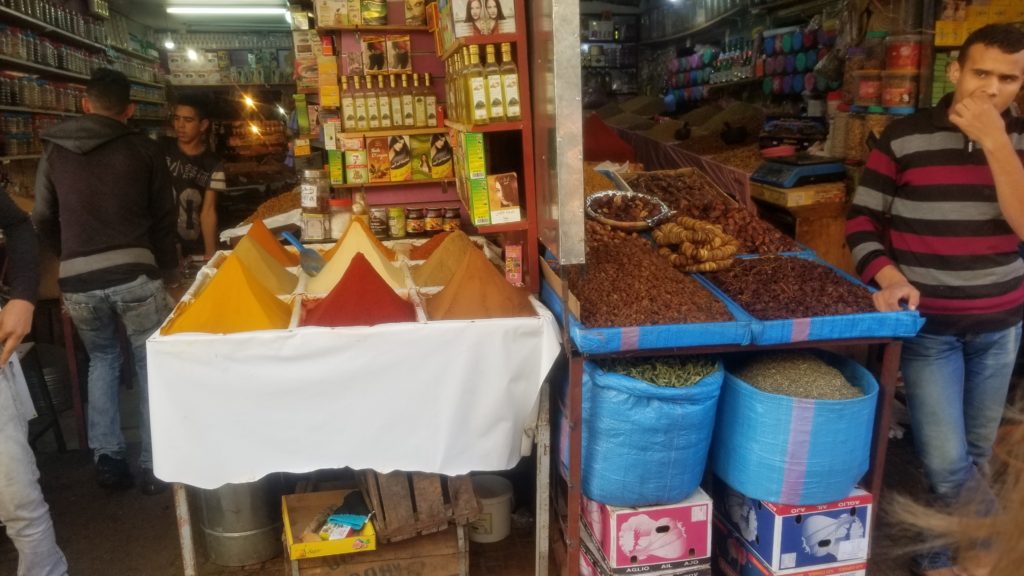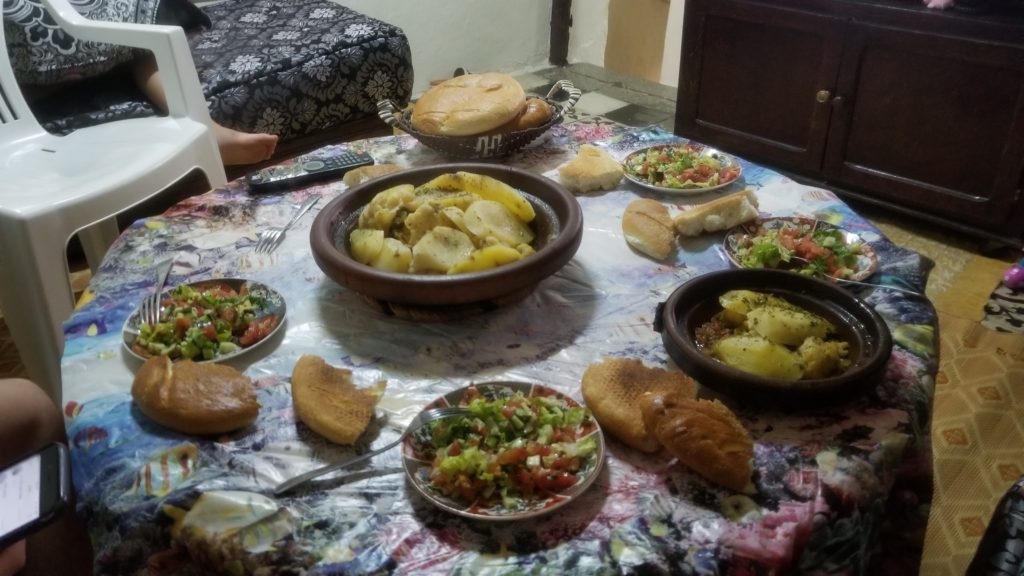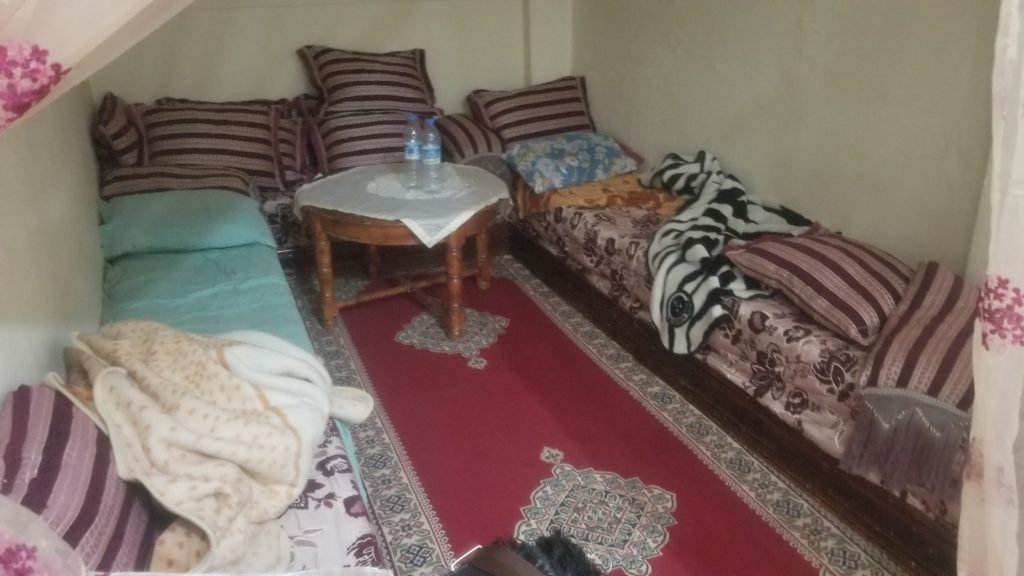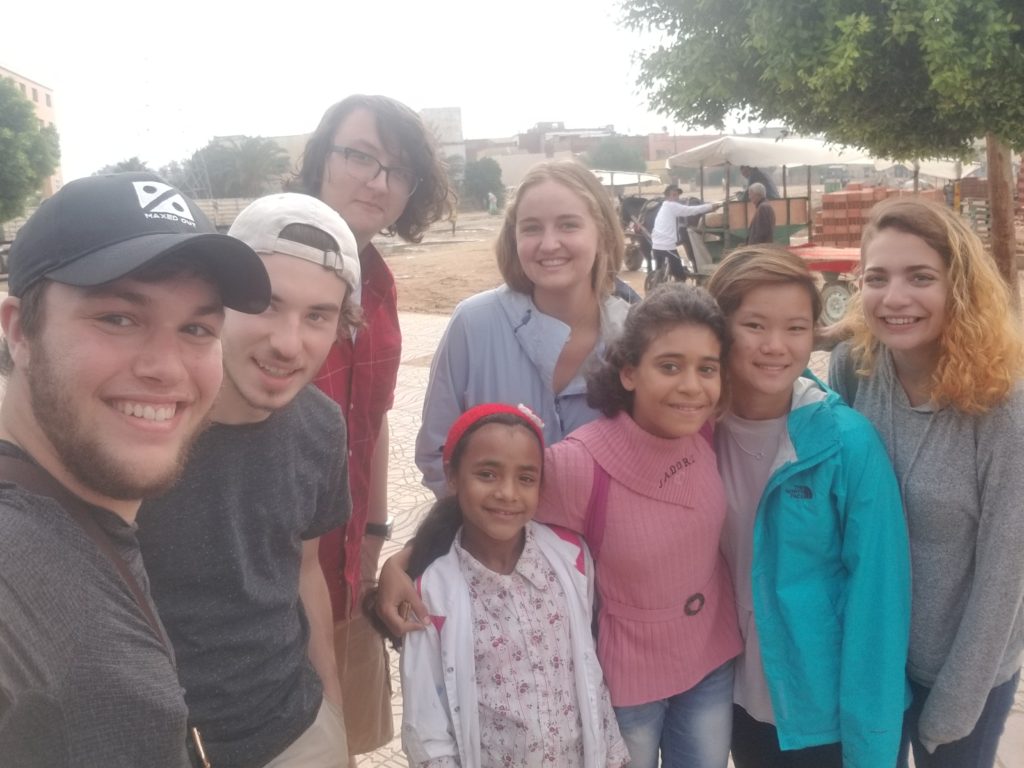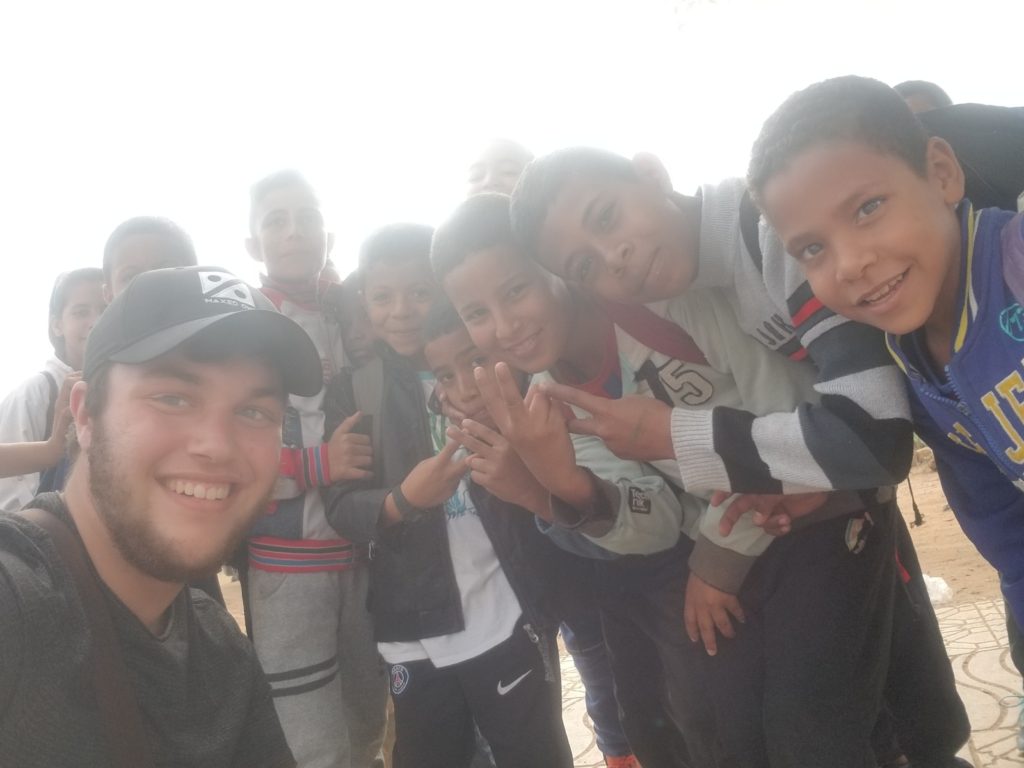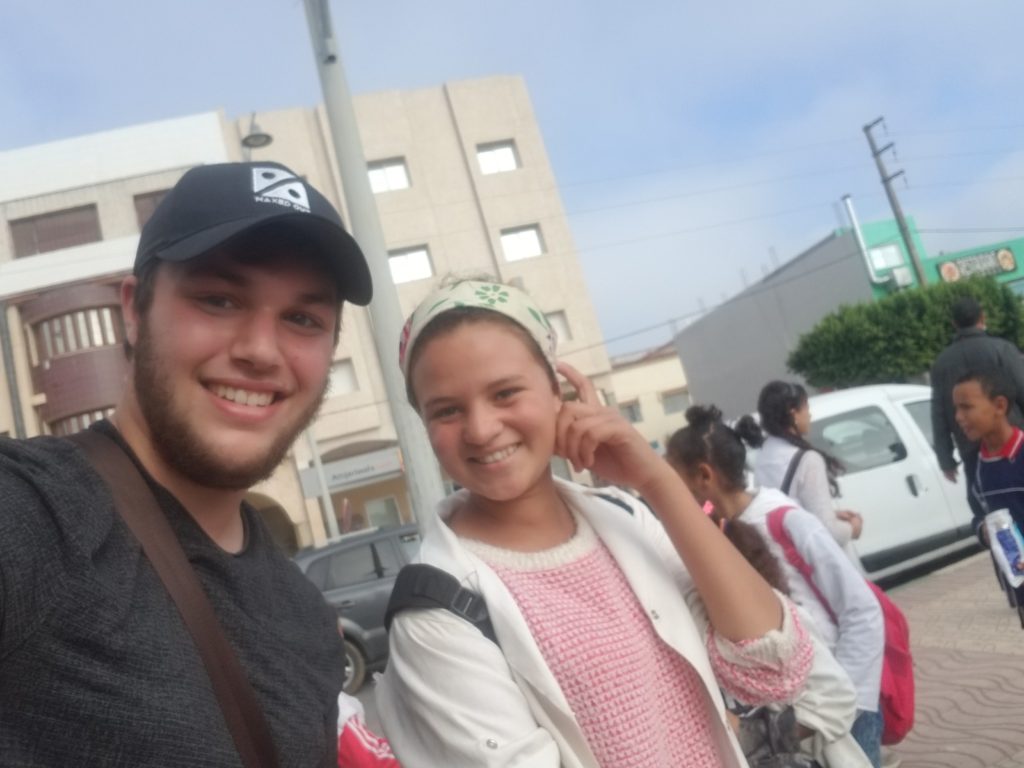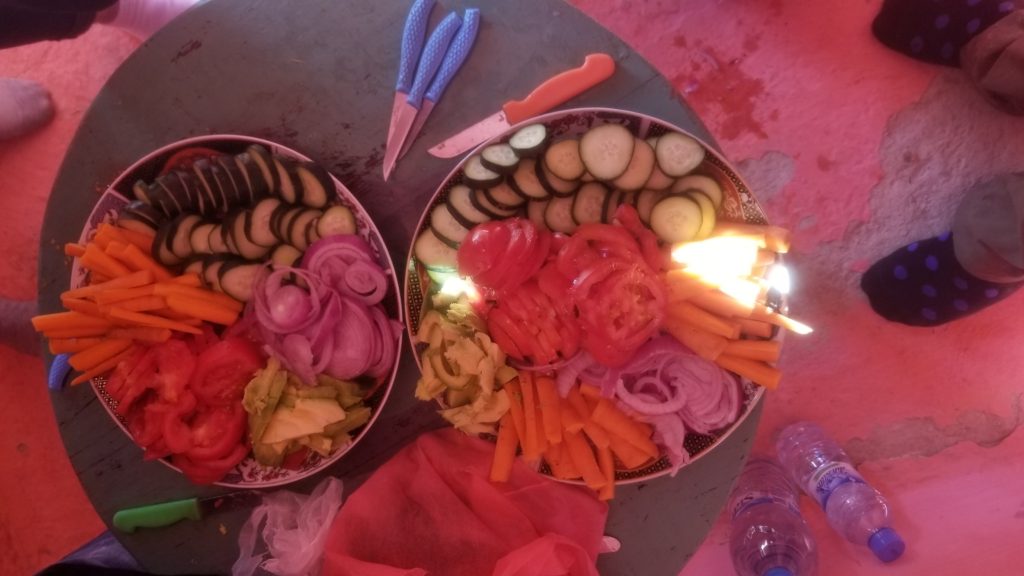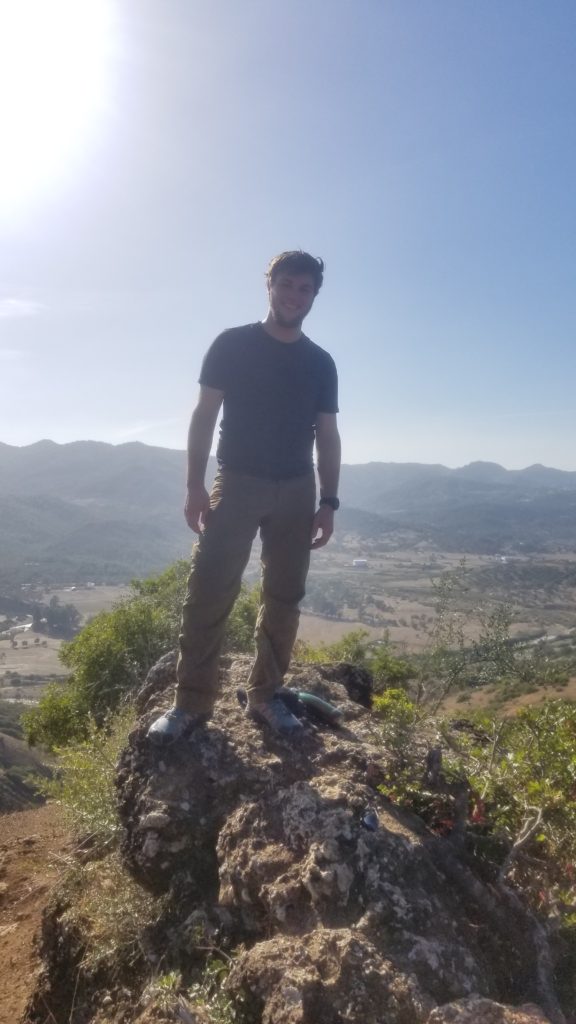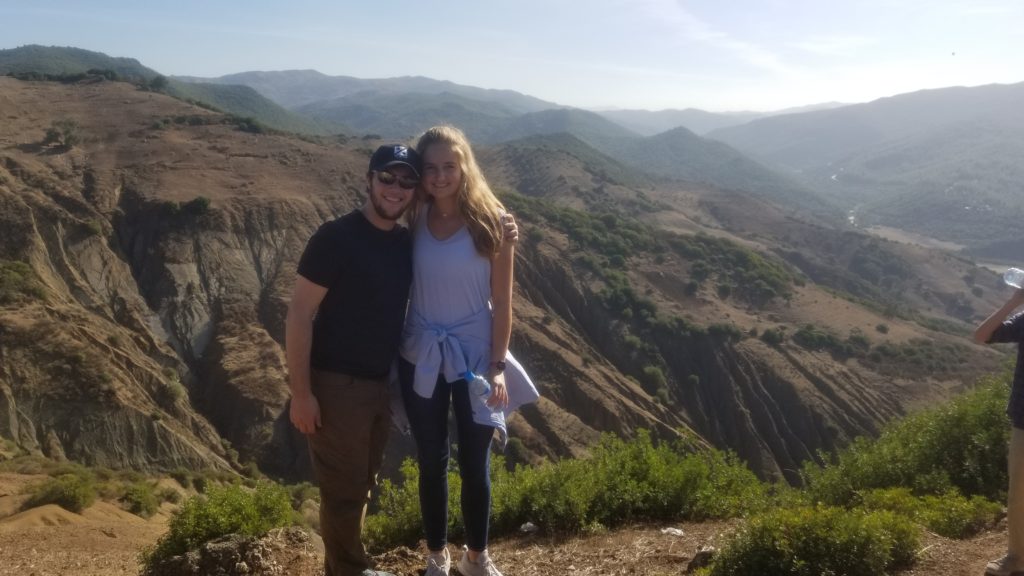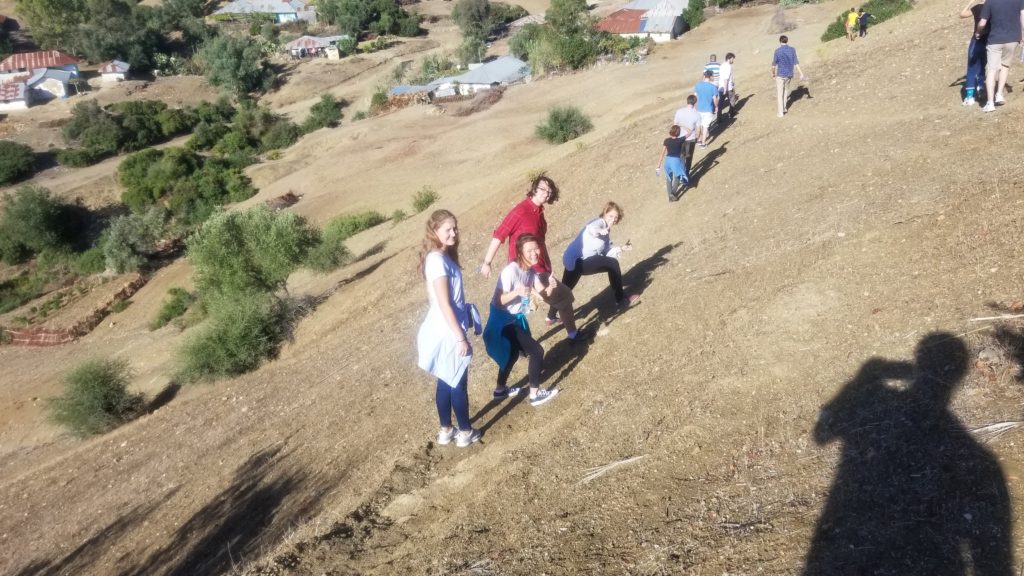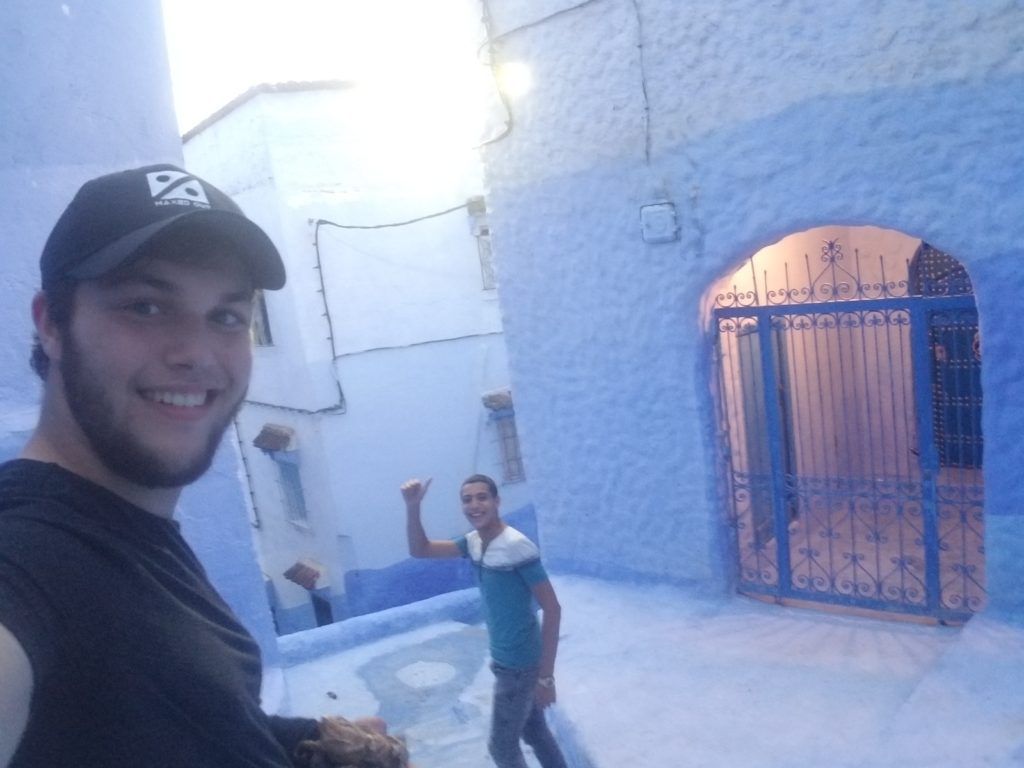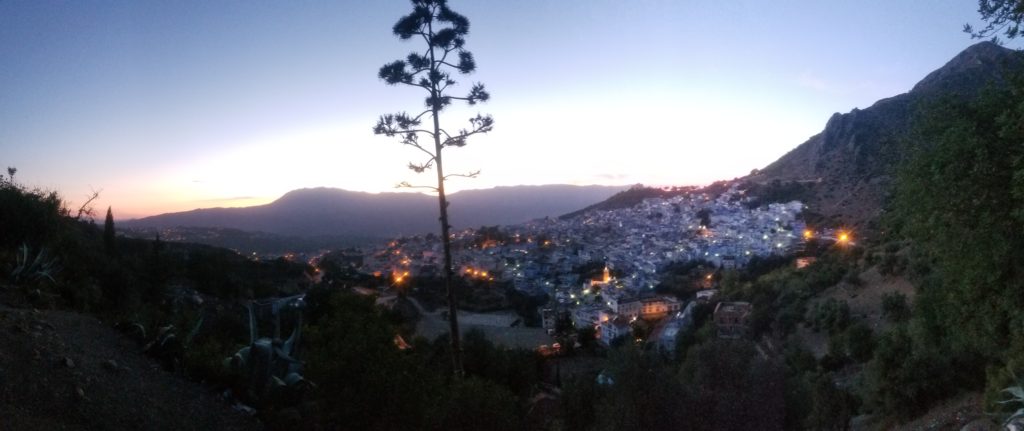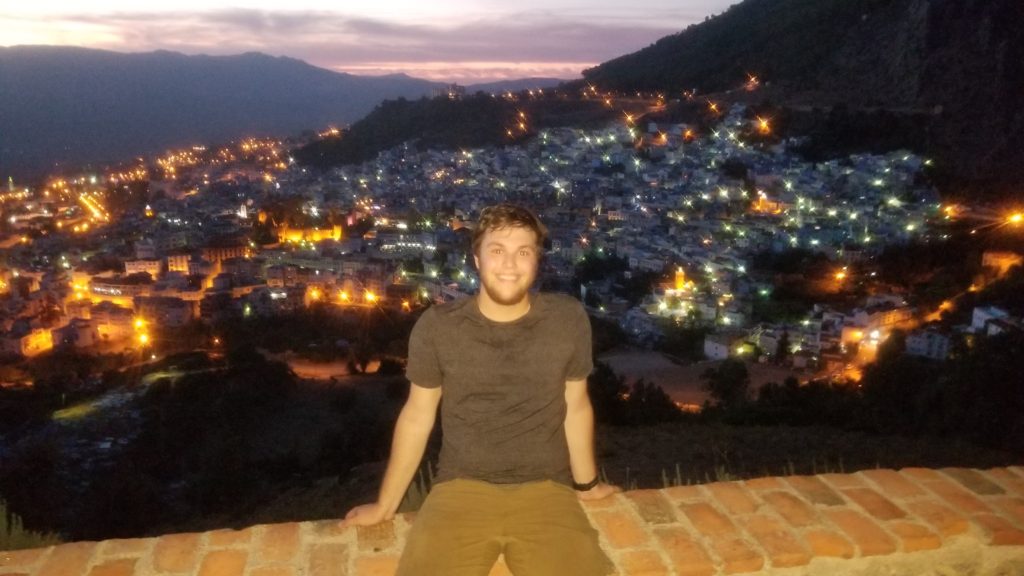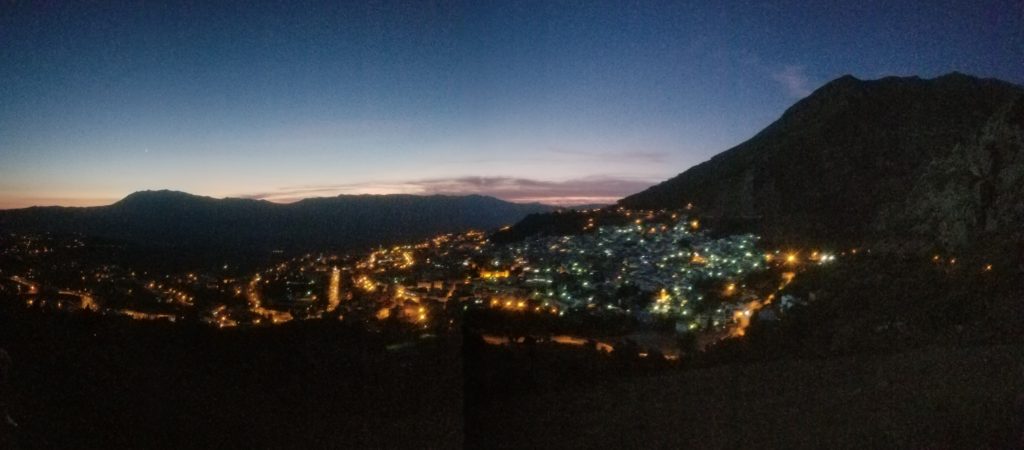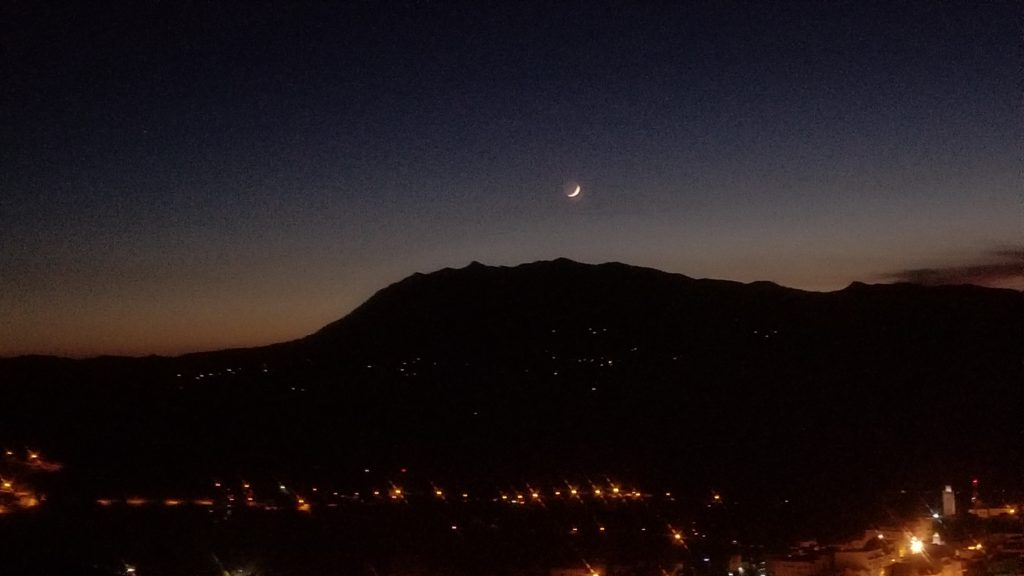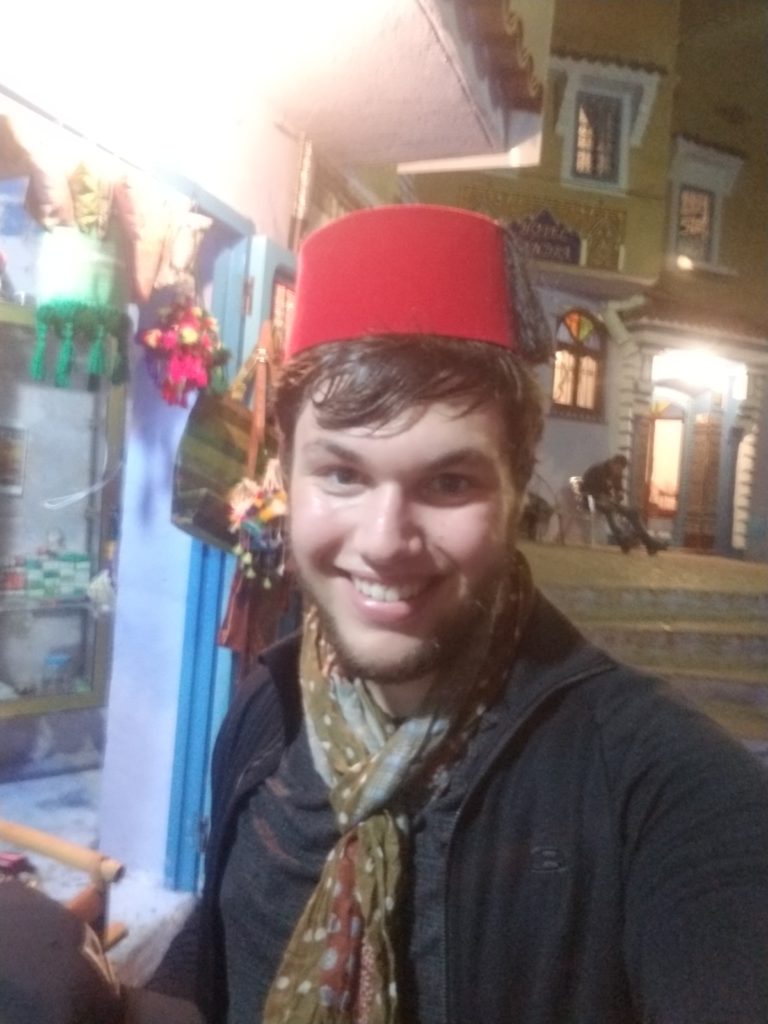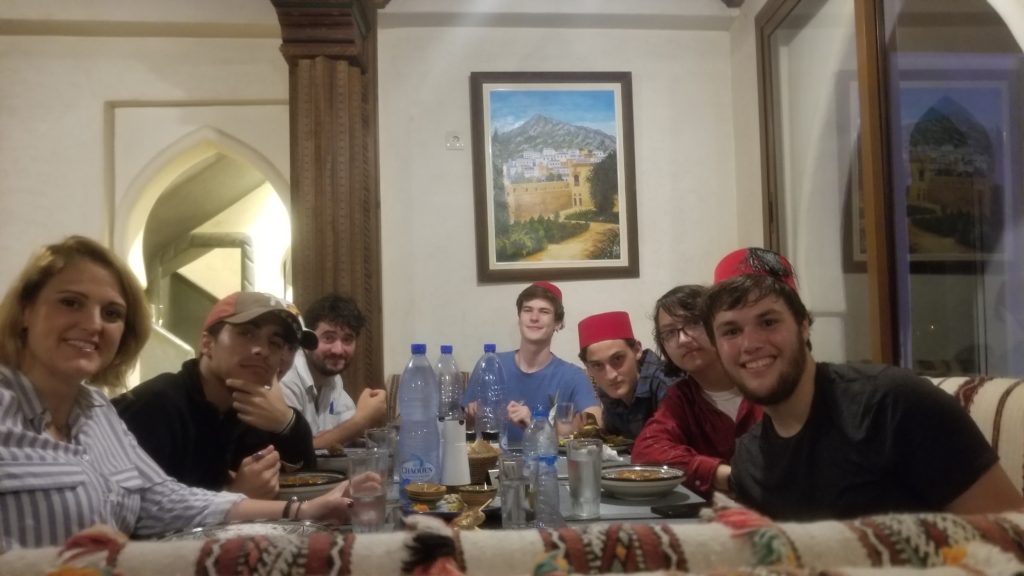***Sorry in advance for such a long post… there’s just so much to say! There are pictures at the end.***
This weekend, we headed to The Kingdom of Morocco. We took a bus to the Strait of Gibraltar, the gateway to Africa from Europe, hopped on a ferry and crossed in about a half hour. We began in Tangier, a port city that was actually an internationally governed zone until the 50’s when it became a city of Morocco. We spent the day in Tangier then drove to Rabat. On the way, we passed impoverished shantytowns of sheet metal and cinder blocks. Before we arrived in Rabat, we stopped to ride camels and tour the town Asilah. We spent two nights in Rabat, staying and eating with host families. We then headed to a remote mountain village to have lunch with a more traditional Muslim family (and a bunch of friendly stray cats who wandered in to eat the scraps. We stopped the chicken at the door who tried to follow). One of our guides translated for us. We played a pickup game of futball (soccer) with the kids and took a short walk to a lookout point. That night we headed to Chefchaouen, an extremely remote town, known for its blue walls, and before the construction of roads, a massive hideout for Jews and Muslims fleeing the Spanish Inquisition and other persecution. We wandered around and I made friends with a local boy who ended up showing me around for about two and a half hours (more on that later) we then had a nice dinner in the city. We headed back to the hotel and played a low/no-stakes game of poker on the roof until about three in the morning under the star-filled Saraharian sky. (Lindsay won big time) Early the next morning, we headed to The Spanish territory/major city of Ceuta. An incredibly valuable port city still controlled by the Spanish despite the Moroccans strong objections; also the land border with the largest disparity of wealth in the world. First world Spain to third world Morocco. (It was uncannily empty at the border, and we accidentally walked right through and had to turn around and go back to get passport stamps.) We then hopped on a ferry and headed back across the Strait to Spain, spotting a few pods of dolphins along the way. Then on a bus back to Sevilla.
The whole trip was quite moving in a number of ways. First of all, not only is Morocco is the first and only African country I’ve visited, it’s also the first and only predominantly Muslim country I’ve visited. Culture shock on two fronts. Here I’ll talk about some of the experiences I had and the things that I learned.
Firstly is the religion. Islam is by far the predominant religion of the country. Evidence of it is everywhere. And interestingly enough, it’s very protected by the government. Across the whole nation, proselytizing from Islam to any other religion is highly illegal and Muslims are not allowed to convert by law, while the other way around is encouraged. The laws written in the Koran are deeply rooted in the law of the land, with far too many examples to list. The attitudes around many things are quite universal. For example, any public displays of affection or anything related are highly forbidden. When movies are dubbed in Arabic any cursing is simply omitted and everything from kissing on is entirely cut. We watched The Wolf of Wall Street. It was about 30 minutes long. There are also five, widely observed prayers a day, with the call to prayer being played over loudspeakers across the city early every morning. Being a highly religious country also carries many upsides. People are kind and friendly. In accordance with one of the five pillars of Islam, Zakāt, charity and general goodwill is abundant. People are friendly and welcome foreigners. Perhaps as a product of 25% of the country’s economy being based on tourism, everyone was very accommodating. English was widespread and I personally felt very safe and welcomed every minute of the trip. A division of the police is entirely dedicated to protecting tourists and armed soldiers and police are abundant in cities to help keep the peace. (much like in Israel).
Perhaps the best example of the welcoming attitude came for me on the second to last day. In Chefchaouen, a remote and beautiful city flanked by impressive mountains (google it), we were given about three hours to wander and shop. I decided to go it alone, planning to just get lost. About twenty minutes in, I wandered into a store. I looked around for a minute but couldn’t find any attendant. I shouted ‘hello’ a few times, but no answer. I left and on my way out, a boy, about my age called down from a window “It’s closed.” I said thanks and kept walking. I walked about a hundred feet, then decided to turn around. I called up to the window and asked if the boy spoke English. He responded “yes,” and I offered him 50 Dirhams (about $5) to give me a quick tour of his city. He was a bit caught off guard, but decided to help me. He came down and we were off. Youssef proceeded to tour me around his city for the next two and a half hours, taking me to a Mosque overlooking the city and area at sundown, to a carnival just outside of the city, to the main square, and everywhere in between. We raced through some streets (literally) and he called me his brother over and over again, getting me the local prices. He said ‘hi’ to and knew the name of just about every other person we walked by and we weren’t bothered by anyone the whole time. We had a great conversation, with him practicing his English and me learning Arabic one word at a time. I saw the city a million times better than anyone else in the group and when we got to my meeting point, two and a half hours later, I tried to give him his hard earned money, but he wouldn’t take it! One of my guides, a local, helped me out by shoving it in his pocket and saying a few words in Arabic. We exchanged a hug and our Facebook and phone number. My only Moroccan friend and his only American one. We’re still in contact, and I’m sure we’ll keep up and meet again someday. My point being, that people are there to help. In Morocco, the overwhelming attitude was a welcoming one. It was simply inescapable.
Which brings me to my next example. While in Rabat, we each stayed with host families. Zach and I were paired up with a family consisting of a mom, dad, three kids and another (long-term) exchange student from San Francisco (A nice, unexpected perk). The mother spoke English and the (12-year-old) daughter as well. The experience was something else. From eating meals altogether out of a communal dish to watching tv (almost all simply American TV dubbed or subtitled in Arabic). The experience was really eye-opening and I would highly recommend it to anyone!
Lastly, I have to talk about the young people we met. We explicitly spent time with a number of local students, even walking with one through the market in Rabat. It was interesting to hear the opinions and experiences of people roughly my age. A number of things stood out. I’ll list them. Firstly, this seems to be the generation to reject the ideas of the last. (How strange?) Much like my generation back in the states, this generation of Moroccans appears to be rejecting traditions. Traditional garments/head coverings, alcohol, five prayers a day, etc. They’re questioning it. (An aside, while in the rural village, I asked the family if many of the local kids will go to university. The answer was yes. Most will. (college is free in Morocco for Moroccans). However, the dad commented that “this generation was born with soft hands.” As a family of many generations of farmers, a university education seemed silly.) A desire to be educated and even move to cities, while rejecting many of the traditions of the past seemed to be the overwhelming attitude of the young folks in Morocco. Secondly, is a desire to travel. All of the young people I met expressed a desire to travel outside of Morocco. See the world. But many of them had never as much as left Morocco. Not to Spain or France and not into deeper Africa. I asked why and was met with two main responses. Firstly is money. Travel isn’t cheap and many Moroccans, both young and old, can’t afford it. Secondly, were visas. My US passport grants me access most countries on the planet without any visa or a visa on entry. A Moroccan passport doesn’t. To visit any of Europe or The States, a visa is needed, and the process isn’t easy or cheap. Most of the people I met simply can’t make it happen, despite their strong desire.
To conclude, Morocco was an incredible experience, and I will be back. The people I met and the things I saw I will remember for my whole life, and have helped to shift some of my opinions and perspectives. I would recommend a visit to anyone who is able!
